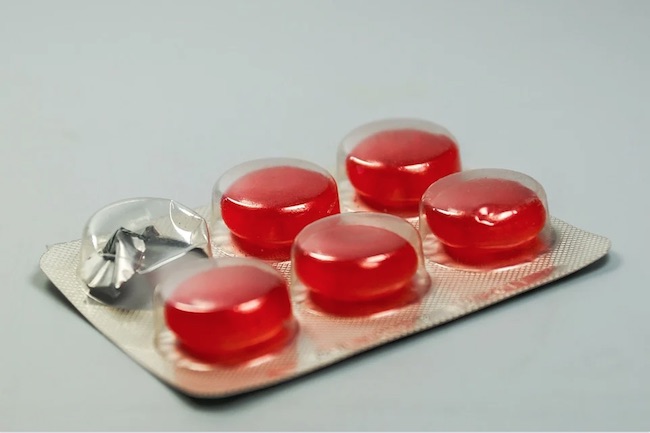Quercetin can protect you from the harmful effects of pesticides By Zoey Sky for Natural Health
More than a thousand different chemicals are used as pesticides in the United States. These harmful pesticides are used on at least 20,000 different products. Unfortunately, pesticides are also often used in homes, gardens, lawns, parks and schools.
Studies have confirmed that excessive and prolonged exposure to pesticides is linked to cancer, endocrine disorders, respiratory problems, birth defects and organ failure. Pesticide exposure is also associated with neurodegenerative conditions like Alzheimer’s disease and Parkinson’s disease.
Fortunately, a beneficial plant pigment called quercetin can help naturally negate the damage from toxic pesticides and protect against their adverse effects.
Organophosphate pesticides threaten human health
According to researchers, organophosphate pesticides are very harmful. They warned that pregnant women, the elderly, children and those with compromised immune systems are most at risk from exposure.
Studies have found that prenatal or early childhood exposure to organophosphates also increased the risk of neurological damage and learning disorders, such as attention deficit hyperactivity disorder (ADHD).
This is not surprising because organophosphate pesticides were originally developed for use in biological warfare. The pesticide targets the nervous system just like nerve gas.
Organophosphates inhibit cholinesterase, an enzyme that breaks down the neurotransmitter acetylcholine, so acetylcholine builds up in the nerves. This buildup makes it hard to breathe, which can then cause death.
Organophosphates are also harmful to wildlife. According to the Environmental Protection Agency(EPA), organophosphate can also harm bees.
Pesticides may cause neurodegenerative disease
Exposure to pesticides is linked to many adverse effects, such as altered moods, decreased vision, impaired motor skills, memory loss and poor coordination.
Recent studies also suggest a link between chronic pesticide exposure and the increased prevalence of dementia.
To illustrate, dichlorodiphenyltrichloroethane (DDT), an insecticide banned in the U.S. since 1972, can still be ingested through imported foods. You can also be exposed to DDT if you live near farmlands where DDT was previously sprayed.
People with Alzheimer’s have been shown to have 3.8 times more DDT metabolites in their blood than those without Alzheimer’s disease.
Additionally, 76 percent of those with Parkinson’s were found to have detectable amounts of the pesticide beta-hexachlorocyclohexane (beta-HCH) in their blood compared to 40 percent of non-Parkinson’s patients. The link between beta-HCH and Parkinson’s is so pronounced that researchers used the pesticide to reliably predict a diagnosis.
Quercetin activates natural defense systems
Quercetin is a flavonoid and a powerful antioxidant that can be found naturally in plants. The flavonoid also helps protect plants against disease, temperature extremes and toxins.
Scientists believe that quercetin can also offer benefits for humans and they have found that quercetin shows great promise in helping suppress the negative side effects of exposure to pesticides.
Quercetin protects through different mechanisms. The flavonoid preserves the metabolism of energy, fatty acids and sex hormones. Quercetin also reduces oxidative stress, protects against damage to cellular DNA and helps boost kidney and liver function.
Studies confirm quercetin’s neuroprotective effects
Research has also confirmed that quercetin has neuroprotective effects.
According to a 2016 study published in the journal NeuroReport, researchers discovered that the oral administration of quercetin-enriched onion powder for four weeks significantly improved memory in participants with early-stage Alzheimer’s.
In a 2015 study published in the journal Acta Pharmaceutica Sinica, findings revealed that quercetin helped reduce the toxicity of beta amyloid proteins that accumulate in the brains of patients with Alzheimer’s and cause dementia and memory loss.
According to animal studies, quercetin protects brain-cell function and prevents brain-cell death. The antioxidant also helps boost natural defense systems by activating glutathione, the body’s premier antioxidant.
A different study revealed that quercetin protects brain cells against toxicity from the pesticide endosulfan by reducing oxidative stress and mitochondrial swelling. Findings showed that quercetin did more than “improve” levels of beneficial enzymes and antioxidants. Quercetin also helped reverse the deficits and restored the substances to normal, healthy levels.
Boost your dietary intake of quercetin to help protect against pesticide exposure
You can increase your dietary intake of quercetin by eating a variety of foods full of this beneficial plant pigment such as:
- Brussels sprouts
- Asparagus (Cooked contains slightly more quercetin.)
- Bell peppers (Green and yellow)
- Berries
- Black tea
- Broccoli
- Buckwheat
- Cabbage
- Capers (The most concentrated source of quercetin.)
- Cherries
- Citrus fruits
- Elderberry tea
- Grapes
- Green tea
- Kale
- Nuts (Like almonds and pistachios.)
- Red apples
- Red onion (The highest vegetable source of quercetin.)
- Red wine
- Scallions
- Shallots
- Tomatoes (Organically grown tomatoes contain at least 79 percent more quercetin than conventionally grown tomatoes.)
You can also take quercetin in capsule and tablet form. The usual dosages range from 150 to 400 mg a day.
Pesticides are a constant threat to your overall health, but you can boost your intake of foods rich in quercetin to counteract the adverse effects of pesticide exposure.




